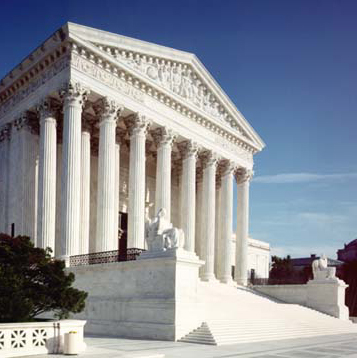
Public employee unions can continue to collect membership fees from nonmembers following a 4–4 split in a U.S. Supreme Court vote March 29. The tie in Friedrichs v. California Teachers Association (PDF) means that a 9th Circuit Court of Appeals decision in the case is affirmed, leaving in place fees that the Supreme Court has allowed since 1977.
The decision is a victory for unions and their supporters and follows the Feb. 13 death of conservative Justice Antonin Scalia, which left eight members on the court who are expected to come to additional split decisions. The challenge to the membership fee precedent had been brought by a group of public school teachers in California who were not part of the California Teachers Association but were required under state law to pay fees related to collective bargaining. Such mandatory fees are prohibited in 25 states.
“Working people are in the fight of their lives to make ends meet and build a better future for their families, and today the Supreme Court rightly protected their ability to join together in the workplace,” Mary Kay Henry, president of the Service Employees International Union, said in a statement.
“Today’s ruling will mean greater economic stability for millions of families,” U.S. Department of Labor Secretary Thomas E. Perez said in a statement after the decision was announced. “It’s a critical step toward creating shared prosperity and a balanced economy that works for everyone.”
The court’s vote does not set a new precedent.
Birth control
In other action, the Supreme Court issued an order (PDF) asking the federal government and the religious nonprofit institutions challenging the birth control-related provision of the Affordable Care Act to file supplemental briefs addressing how workers might obtain contraceptive coverage through their employers’ insurance companies without involving the employers. Plaintiffs in Zubik v. Buwell include the Little Sisters of the Poor, a group of nuns that operates 27 homes and cares for those who are elderly and poor.
The briefs must be filed by April 12, with the groups being able to respond to the opposing briefs until April 20.



